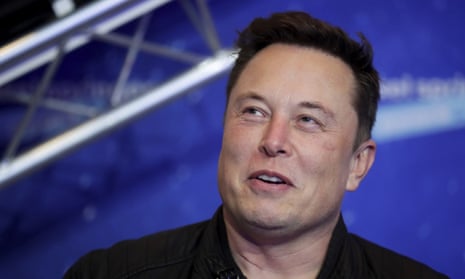The chairmen of two congressional panels on oversight and trade have assailed Tesla’s expansion in China’s far-western Xinjiang region, where mass internment camps have drawn heavy criticism, and asked the electric carmaker about its Chinese product sourcing.
“Your misguided expansion into the Xinjiang Uyghur Autonomous Region sets a poor example and further empowers the CCP [Chinese government] at a fraught moment,” Democrats Bill Pascrell and Earl Blumenauer, who head two House of Representatives ways and means subcommittees, wrote in a joint letter to Tesla chief executive Elon Musk.
Tesla made a New Year’s Eve announcement that it opened a showroom in Xinjiang, becoming the latest foreign business caught up in tensions related to the region.
“On the last day of 2021, we meet in Xinjiang. In 2022 let us together launch Xinjiang on its electric journey!” a Weibo post announcement on 31 December read.
Xinjiang has become a significant point of conflict between western governments and China in recent years. UN experts and rights groups estimate that more than 1 million people, mainly Uyghurs and members of other Muslim minorities, have been detained in camps there.
“We are dismayed that Tesla has reportedly opened a showroom in the province that is at the heart of China’s Uyghur detainment in camps and forced labor in factories,” Pascrell and Blumenauer write in the letter dated 19 January.
The chairmen asked Musk whether Tesla sources any goods made or manufactured in Xinjiang and, if so, to identify them. They also asked whether Tesla had any financial relationships with companies connected to Xinjiang and whether Tesla planned to expand into other regions in China.
The company operates a factory in Shanghai, where it is ramping up production amid surging sales in China. China has also become an export hub for Teslas bound for Europe and other markets.
US president Joe Biden and other lawmakers have stepped up pressure on companies to distance themselves from Xinjiang. Biden signed the Uyghur Forced Labor Prevention Act on 23 December barring imports of goods made in the region. The two lawmakers said the questions to Musk were in part to “better understand Tesla’s compliance” with the new law and other US trade regulations.
Today I’ve written to @Tesla boss Elon Musk calling out his engagement in China’s genocide region and pushing him to do more to strengthen our national supply chain. pic.twitter.com/4uUZR0QgRm
— Bill Pascrell, Jr. (@BillPascrell) January 20, 2022
The US has labeled China’s treatment of ethnic Uyghurs and other Muslims in Xinjiang as genocide, enacting a range of sanctions and regulatory measures against Beijing, including restrictions on US business dealings with local operators and suppliers.
The US government also intends to conduct a diplomatic boycott of the coming Beijing Winter Olympics.
China has rejected all accusations of human rights abuses or forced labour and says its policies are part of anti-terrorism efforts and poverty alleviation programs.
The Chinese embassy in Washington and Tesla did not immediately respond to requests for comment.
